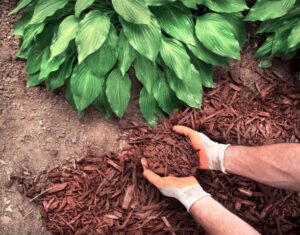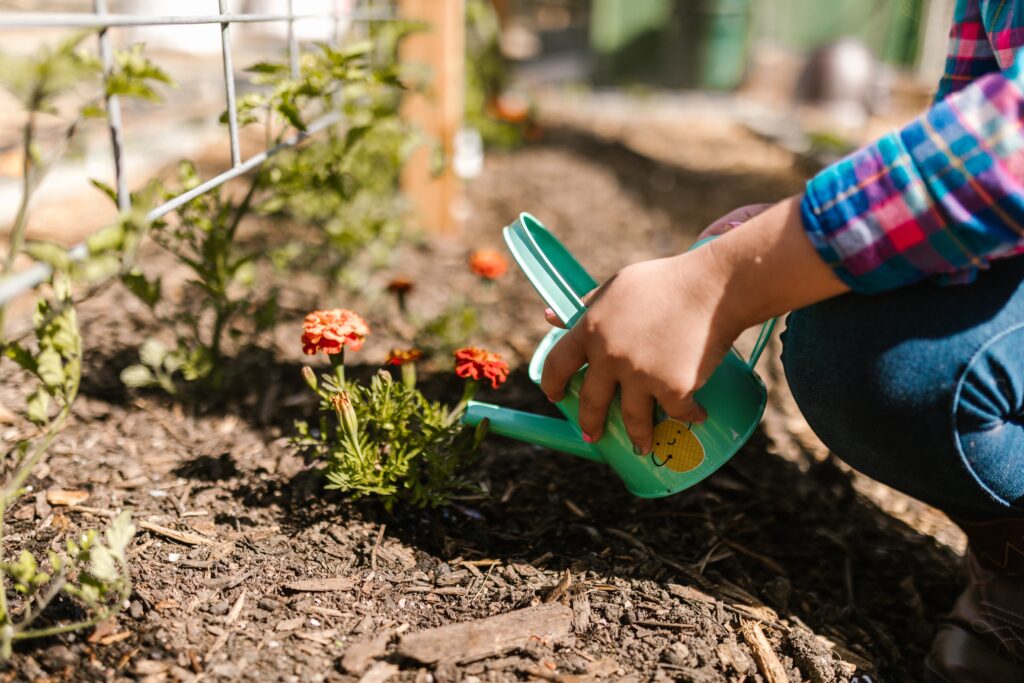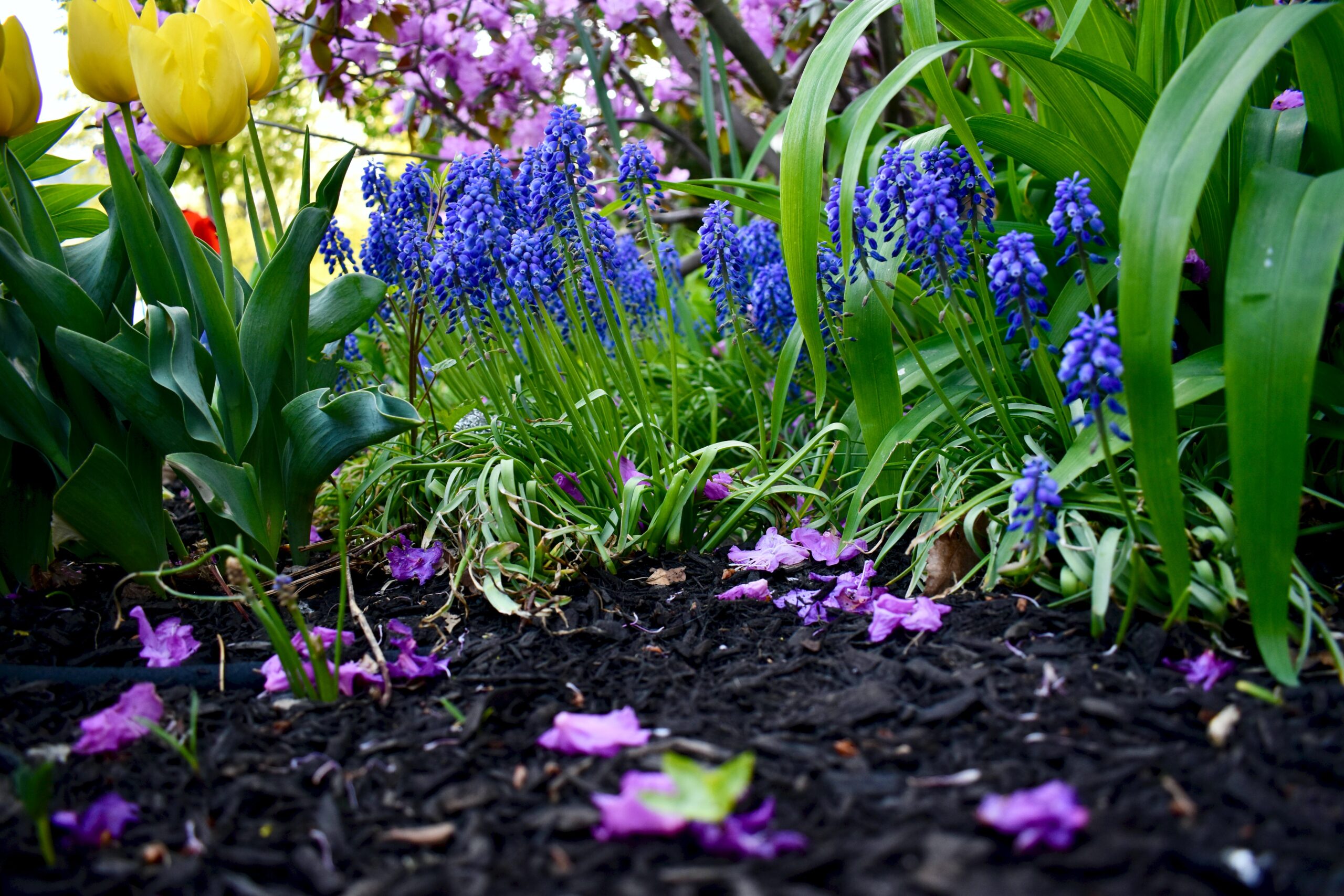Why You Should Never Over-Mulch Your Plants or Trees
The benefits of mulch are so well known that the current question is no longer “should I use mulch?” but rather “how much mulch should I use?” This is a valid inquiry, since using too much mulch can hurt trees and plants.
Can too Much Mulch Kill a Tree?
When mulch is too much? A layer of organic mulch not only keeps down weeds and locks in moisture; it also insulates the ground from cold and hot weather. Finally, it disintegrates into the soil, providing both nutrients and organic content.
Also, too much mulch around trees or too much mulch in flower beds can create serious problems. A thick layer of much can smother small plants and even trees. The amount that will be detrimental depends on the plant. In warmer climates, too much mulch can prevent a plant from experiencing a hardening off process that prepares them for winter.

A most detrimental practice in applying mulch is descriptively termed “mulch volcanoes.” This is when the gardener piles mulch up against the trunks of trees and shrubs in a pyramid shape. This is always bad since mulch holds in moisture. That means that the bark beneath the mulch is constantly moist. The practice results in decay to the tree or shrub and can also provide a point for diseases and pests to enter. This can be easily solved, however. Never pile mulch up against the trunk or stem of a plant. Rather, keep it back by at least 3 inches (7.6 cm).
Disadvantages of too Much Mulch
The most disadvantages of over-mulch are; excess mulch can smother plants in a number of ways in addition to the damage done by mulch volcanoes. For example, if plant roots grow into thick mulch when it is wet, they will die once it dries out. Likewise, too thick a layer of mulch can deprive a plant of water if the gardener only waters lightly, since water may not penetrate beyond the mulch. And deep mulch can cause roots seeking oxygen to circle around in the mulch and girdle the tree or shrub.
A further disadvantage is mulch’s tendency to attract rodents. Too much mulch makes an excellent hiding place for voles or other rodents that gnaw on the shrub bark. It provides a hiding place for voles, a rodent that gnaws on bark, and girdles trunks and the lower stems on shrubs.
There are several thickness rules for mulch that are useful to keep in mind. First, never apply more than 5 or 7.6 cm of organic mulch to any plant. Spread it to the tree line, no further out. Also, when a plant has shallow roots, apply even less, perhaps 2.5 cm. This applies to shallow-rooted shrubs too, like boxwood. One exception is dry leaves, which decompose rapidly and can be piled up a bit thicker.
Different types of vegetables have different needs when it comes to mulch

Root vegetables:
Root vegetables such as carrots, beets, and radishes benefit from a light mulch layer. This helps to keep the soil cool and moist, which can improve the taste and texture of the roots.
Tomatoes and Peppers:
These vegetables require a lot of water and a mulch layer can help to retain moisture and suppress weeds. A mulch layer of organics can also help to keep the fruit off the ground and reduce the risk of disease.
Leafy greens:
Leafy greens such as lettuce and spinach prefer cool, moist soil. A thick layer of organic mulch can help to keep the soil cool and prevent the leaves from wilting in the heat.
Cucumbers and Squash:
These vegetables benefit from a mulch layer that helps to keep moisture and suppress weeds. But it’s important to keep the mulch a few inches away from the stem and leaves of the plants to prevent rot.
Melons:
Melons have a shallow root system, so a thick layer of mulch can help to keep the soil cool and moist. It also helps to keep the fruit off the ground and reduces the risk of disease.
Berries:
Berries such as strawberries and raspberries benefit from a mulch layer that helps to retain moisture and suppress weeds. Straw is a good option for berries because it keeps the fruit off the ground and reduces the risk of disease.
Keep in mind that these are general recommendations and the specific needs of each vegetable may vary depending on the variety, soil conditions and other factors.
Good mulch is a valuable addition to any vegetable garden. By: Teo Spengler, Gardening Know How

